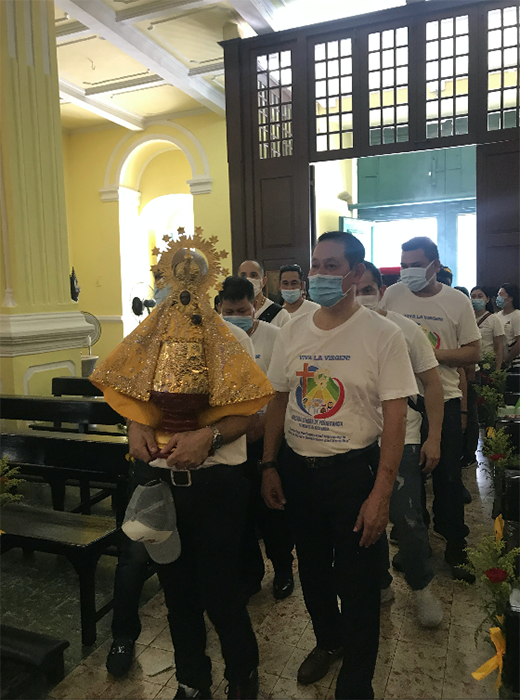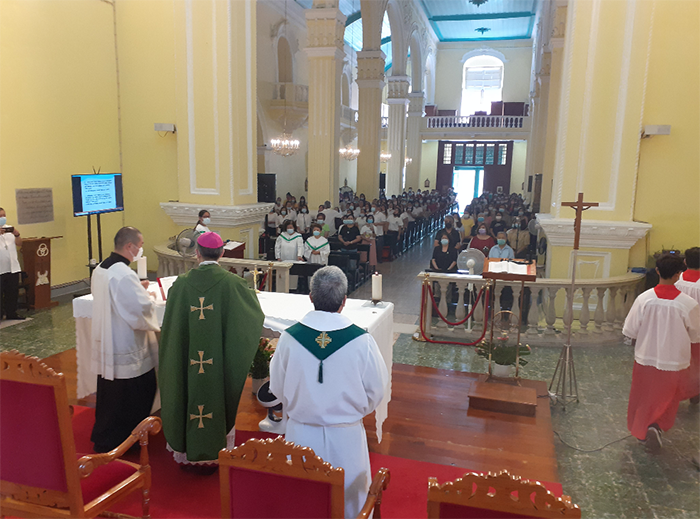Fr Leonard Dollentas
Foreign workers in Macau celebrated “Migrants’ Day” last Sunday, September 27, 2020 without much fanfare. Unlike past year celebrations with abundant merriment and cultural exhibitions, this year focused on invoking God’s intercession and comfort in the midst of hardships brought about by the COVID 19 crisis still raging.
Dominated by Filipinos among the demographic groups, migrant workers in Macau continue to experience physical or mental health challenges caused by uncertainties during this pandemic period. According to the Overseas Workers Welfare Administration (OWWA), a Philippine agency tasked by the government to protect and promote the welfare of Overseas Filipino Workers (OFWs) and their dependents – around 300,000 to 400,000 OFWs worldwide are estimated to be affected by the pandemic either from pay-cuts, or lay-offs, or repatriation. The number includes the thousands of OFWs in Macau who have been advised to leave their jobs due to cutbacks in local companies, several others still have their jobs but worry they might lose them soon. This, however, has not deterred Filipino migrants from celebrating their annual special day. The highlight of the celebration was the thanksgiving Mass celebrated by Bishop Stephen Lee, the bishop of Macau at San Agustin Church. The SOLT Fathers spearheaded the celebration with a number of religious missionaries joining the mass.
The bishop re-echoed Pope Francis’ 106th World Day of Migrants and Refugees 2020 message where the Pope recommended “six pairs of verbs that deal with very practical actions and are linked together in a relationship of cause and effect.” The bishop explained the concrete ways how the migrants can understand others: “You have to know in order to understand,” know the sentiments and stories of others. “It is necessary to be close in order to serve” to be neighbors and understand them with love. He continued explaining: “In order to be reconciled, we need to listen. In order to grow, it is necessary to share. We need to be involved in order to promote. It is necessary to cooperate in order to build.” Filipino migrants should stand in solidarity with other nationalities and commit to ensuring “international cooperation, global solidarity, and local commitment leaving no one excluded.”

Perhaps overwhelmed with the simple yet touching celebration, a Filipino migrant worker said: “We have so much to thank God for the celebration this year, we still have our work and we can still sustain our families. I feel sorry for the others who have been invited to leave Macau and their works. I was thinking about their families.”
Clasping her hands, another Filipino migrant worker declared: “We are thankful to the Macau government and the Catholic Church of Macau for reaching out to us in the midst of the uncertainties we are facing.”
Just recently the University of Macau (UM) and Caritas Macau initiated an app-based health intervention program for Filipino migrant workers. The program was well-received by the Filipinos because of its viability as an additional social services program for the Filipinos during the pandemic. The Catholic Church in Macau extends several other help programs to migrants through Caritas Macau.
(Photo: Fr Leonard Dollentas)


 Follow
Follow


